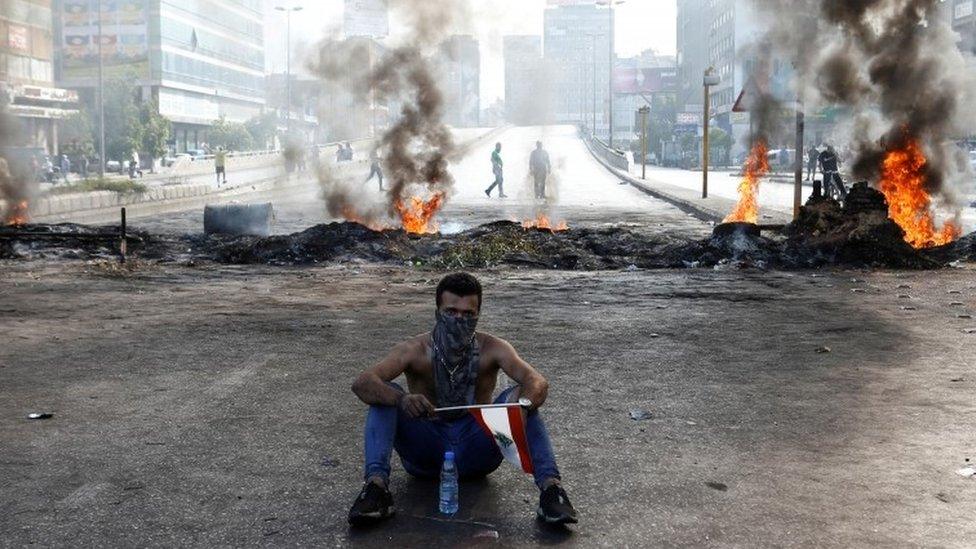Lebanon protests: A country feeling reborn
- Published
From flag waving and calls for revolution, watch how anti-government protests have unfolded in Lebanon
For almost a week, the people of Lebanon have been staging an extraordinary revolt against their politicians.
Schools, universities and offices have been closed as hundreds of thousands of demonstrators have poured into Martyrs' Square in central Beirut and other locations across the country to protest against those who have handsomely profited while steering Lebanon into an economic abyss.
The protests were triggered by a tax on WhatsApp voice calls that the government quickly ditched.
But the government could not contain the anger of a population that is sick and tired of economic stagnation, endemic corruption and a lack of basic public services.
The Lebanese economy is currently staggering under one of the highest debt levels in the world and there is little room for manoeuvre.
What has been striking is that the protests have cut across the sectarian lines that have plagued Lebanon for decades.
"For the first time ever there is real unity in the country and not a fake one like we've seen before," says Christian Manachi, 29, a protester.
"People are realising that a Christian living in extreme poverty is no different from a Sunni or Shia living in extreme poverty."
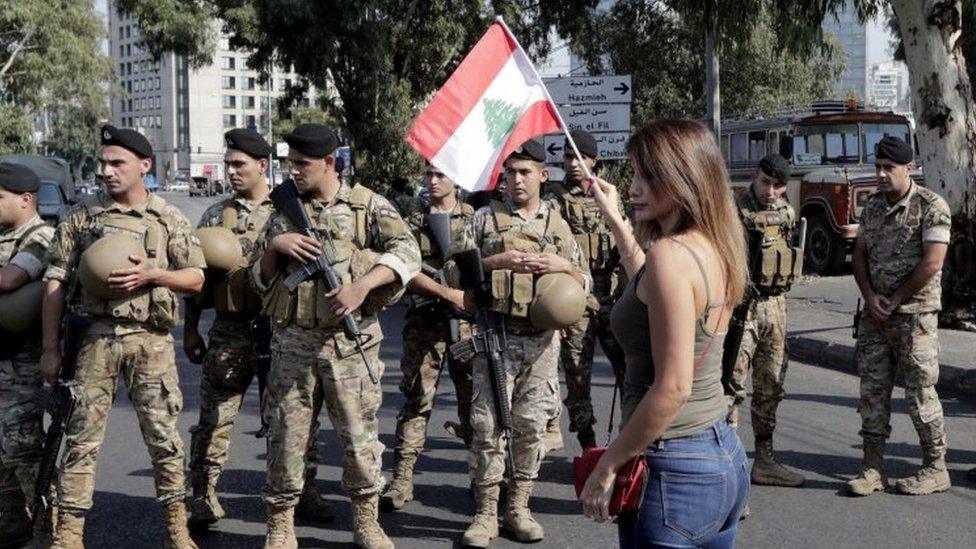
Lebanon is a country that feels reborn in the past week
Lebanon's political system allocates the top political jobs according to religion. That has produced a patronage system expertly exploited by the politicians.
The protesters have called on all their leaders to resign - a handful of ministers have gone but so far most are resisting.
On Monday, embattled Prime Minister Saad Hariri unveiled a raft of economic reforms, which he hopes will assuage some of the protesters' anger. He promised to slash politicians' pay, invest in power plants and also tax banks to help reduce public debt.
In a speech, Mr Hariri was careful not to inflame the situation further, saying he had heard people's anger.
But many demonstrators believe it is too little too late and they are vowing to stay on the streets to "topple the regime".
"It was all too vague," one young protester told me. "Why didn't they do it 30 years ago?"
But Lebanon's political leaders will be hoping that the protests - which have been spontaneous rather than organised - will eventually fizzle out.
If that does not happen, the country will be heading deeper into uncharted territory. That will alarm the West, which regards Lebanon as an island of relative stability in a turbulent Middle East.
Lebanon protesters: "We can make a change"
What is undeniable is that Lebanon is a country that feels reborn in the past week. People who were marginalised for decades suddenly feel they can hold their political elite to account and demand changes.
The power-sharing agreement that ended the civil war 30 years ago may have kept the peace but it has also created economic misery for many Lebanese - and is now creaking.
However, the carnival-like atmosphere, where kids come to protest with their parents and demonstrators dance up a storm in Tripoli, masks the real dangers. Old divisions die hard here.
Lebanon's leaders may have been paralysed by these protests but that does not mean they are going to hand over power without a fight.
- Published19 October 2019
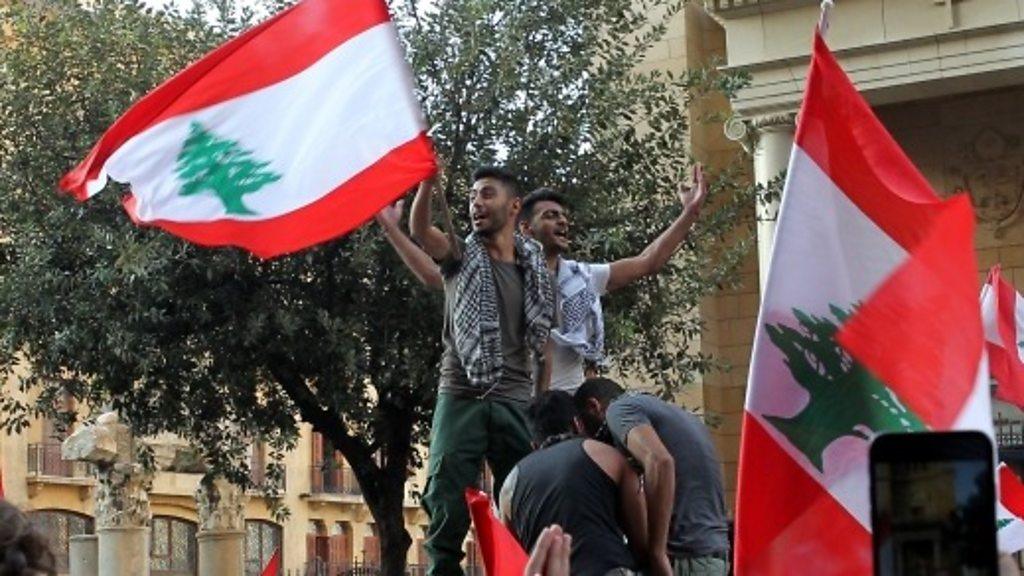
- Published18 October 2019
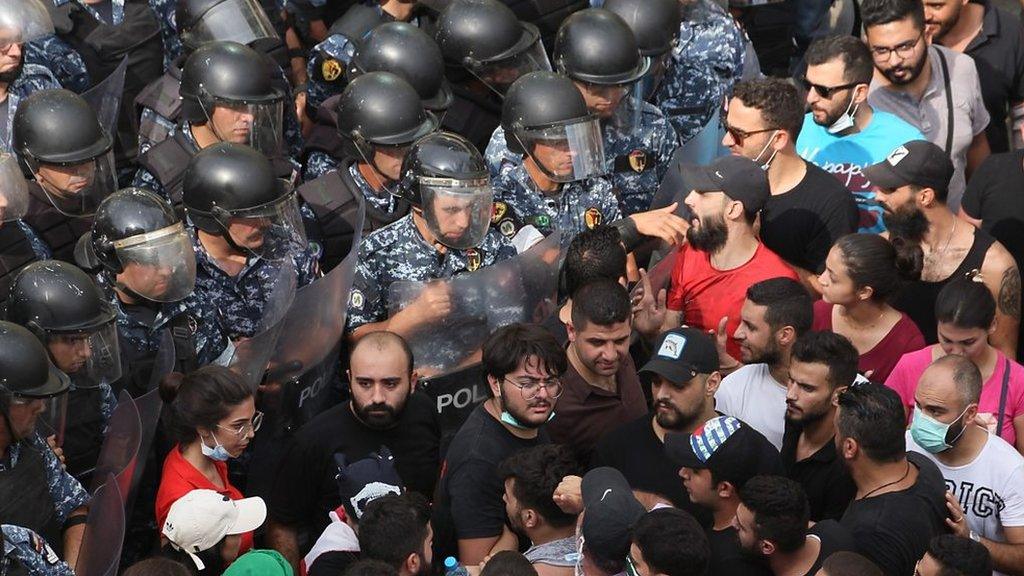
- Published15 October 2019
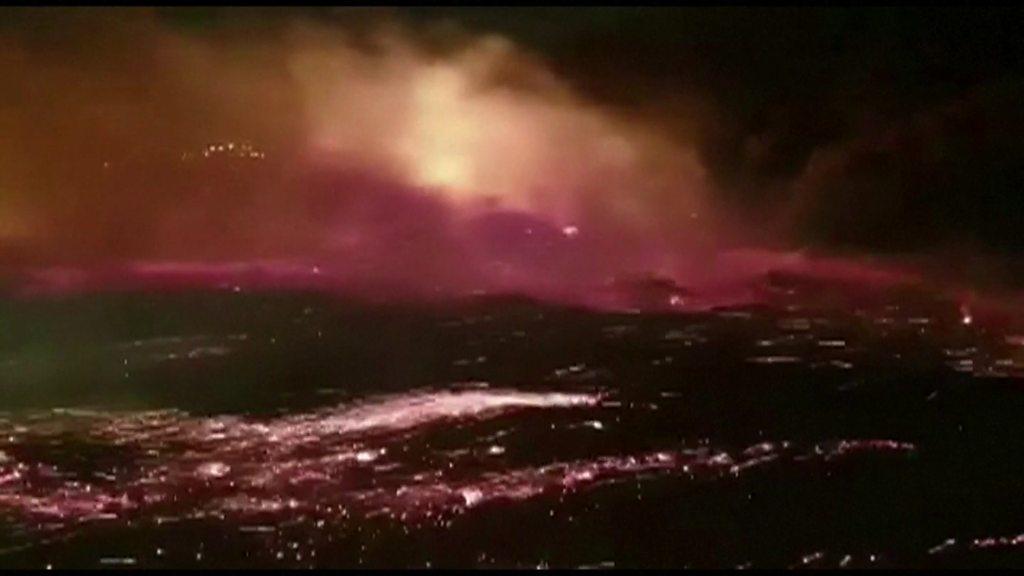
- Published21 October 2019
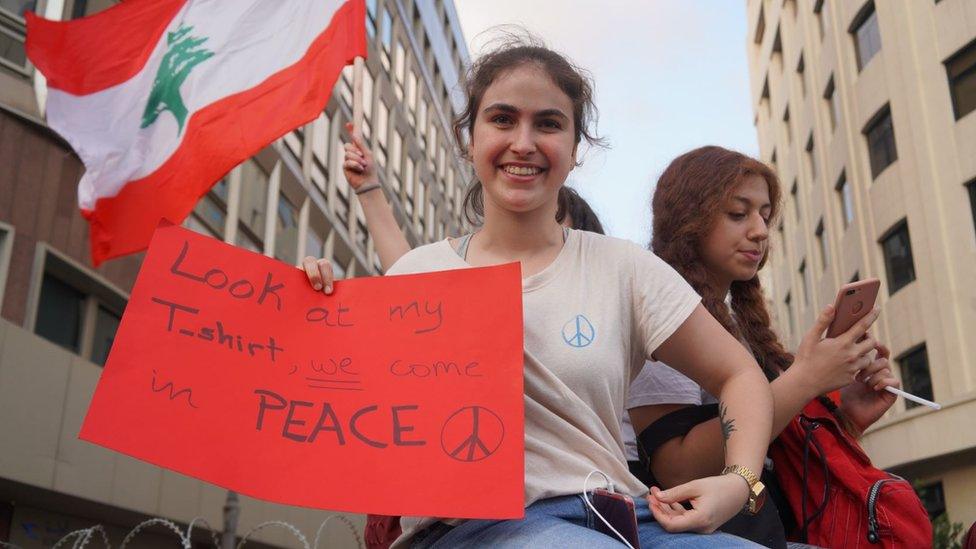
- Published18 October 2019
